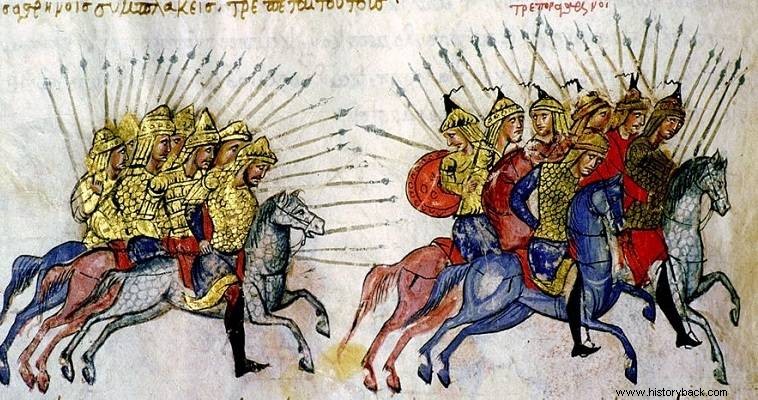
On October 28, 969 AD the great Syrian metropolis of Antioch was freed from the Arab yoke by the Byzantines. The humiliated Arabs of the region then asked for peace. However, the new dynasty ruling Egypt, that of the Fatimids, had a different opinion and declared a "holy war" against the "infidel Greeks".
A powerful Fatimid army under Ja'far ibn Fallah invaded Palestine, defeated the Arabs of the region and captured Ramla and then Damascus. Fallah ordered his general Futuh to attack Byzantine territory and capture Antioch. According to the Byzantine historian Kedrinos, the Muslim army numbered 100,000 men from various regions – Berbers, Arabs of Palestine, Syrians and others.
Indeed Futuh's numerous army reached the city and besieged it. However, residents and guards put up strong resistance. So Fallah decided to reinforce Futuh by sending a second army in order to completely blockade the city.
At the same time the emperor Ioannis Tsimiskis watched the developments anxiously. He and the best units of the Byzantine army faced Russians and Bulgarians in present-day Bulgaria. So to help Antioch he sent only a small force under his trusted patrician Nicholas. The historian Leo the Deacon states that Nicholas was an experienced commander and as it turned out he was right.
Nikolaos, in the spring of 971 AD. moved towards Antioch which had already been besieged for five months. When the small Byzantine force approached Alexandretta, it was noticed by the patrols of the besiegers. Immediately Futuh detached a body under Aras and az Zayat to meet her. But Nikolaos had also perceived the movements of the enemy.
So he secretly left his camp and ambushed the Muslims. The latter attacked the Byzantine camp, but found it empty and began looting. Then the hidden Byzantines rushed out and attacked the Muslims from three axes. Almost the entire Muslim force perished in the battle although its leaders escaped.
After this defeat, having to face Arab opponents as well, Fallah ordered his forces to lift the siege of Antioch and retreat to Damascus. It was the first conflict between Byzantines and Fatimids who not only lost many of their men in Alexandretta but also their prestige that "collapsed".
